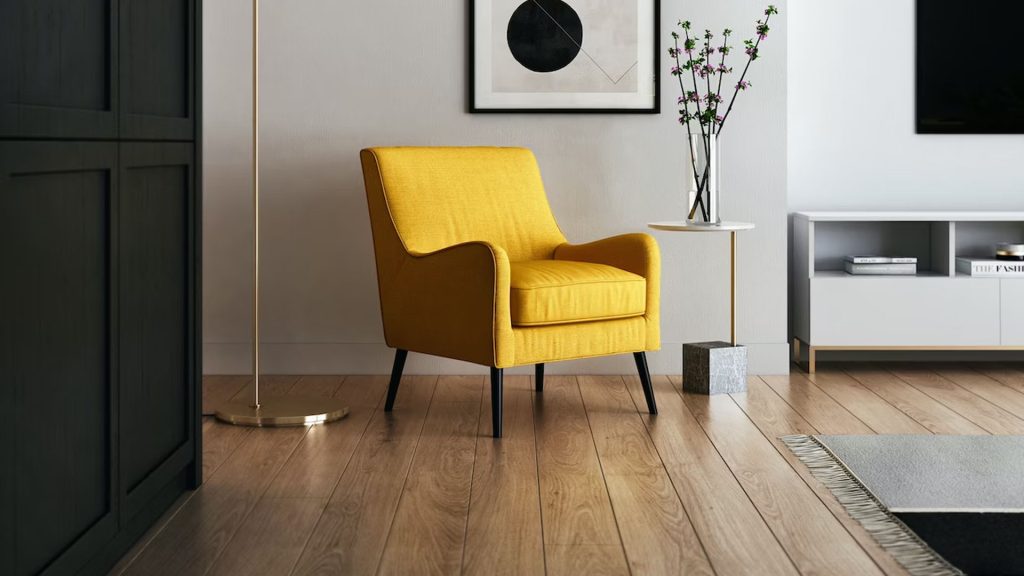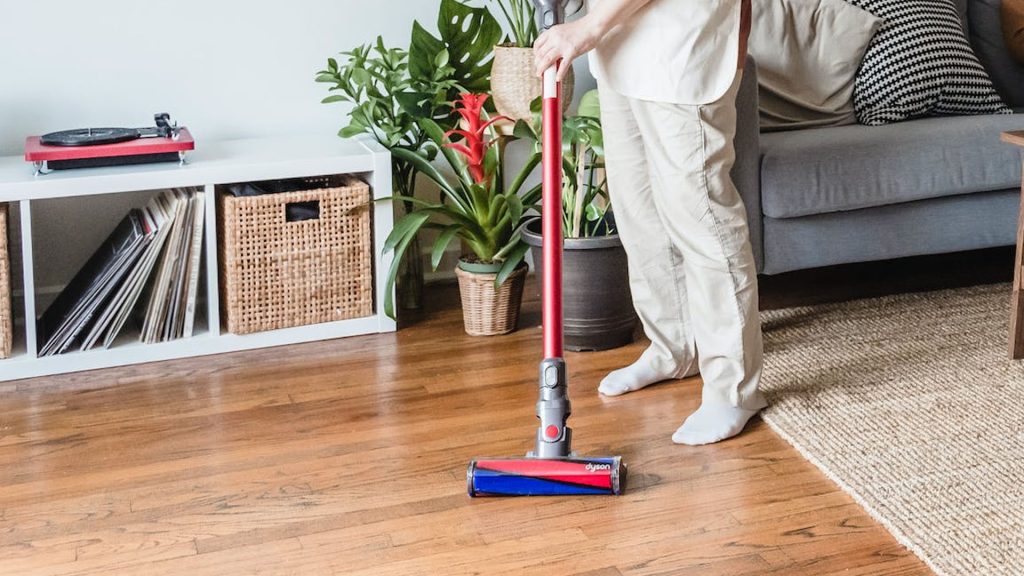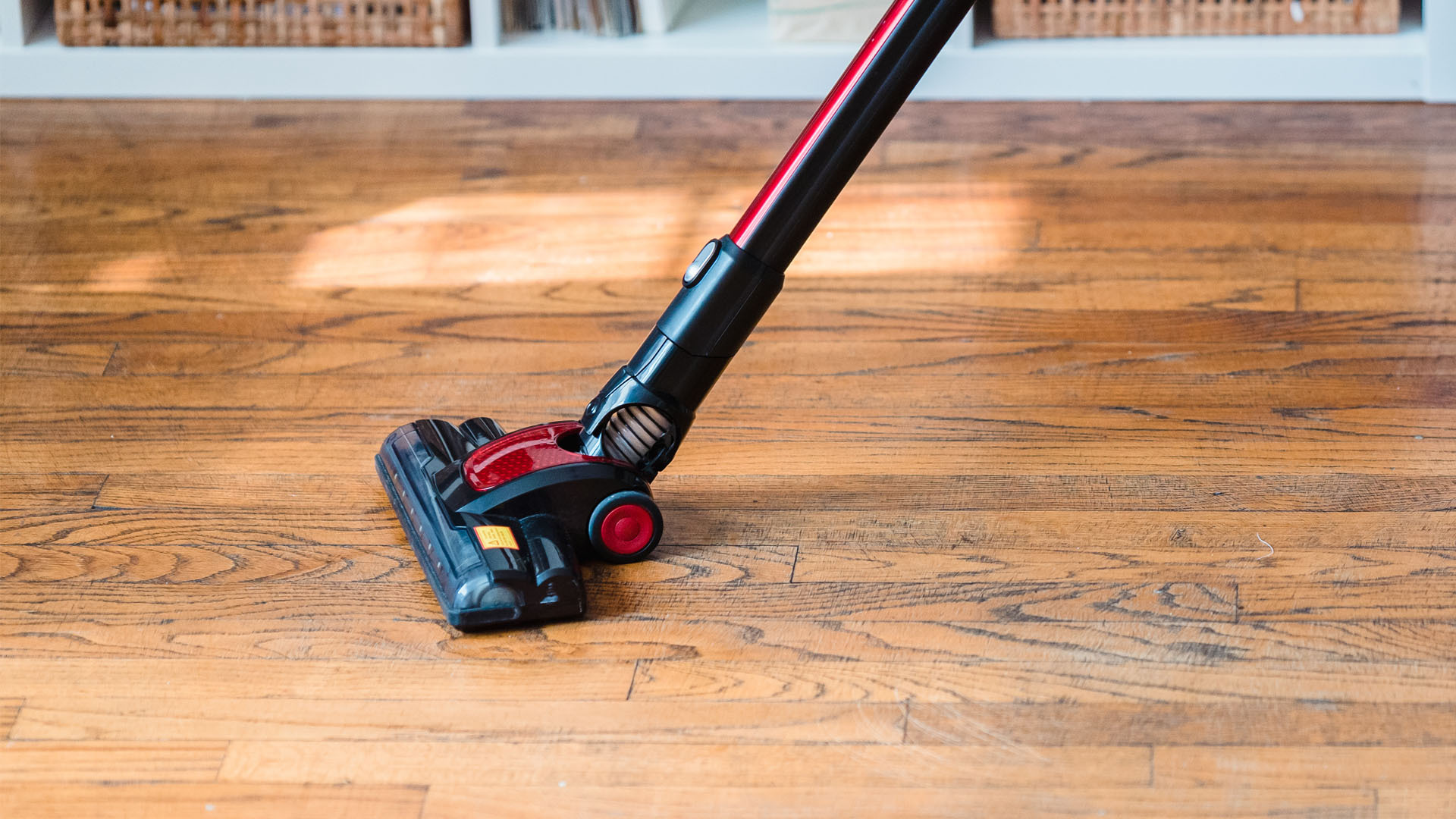As a homeowner with hardwood floors, I’ve often asked myself, “Do vacuums ruin hardwood floors?” With so many types of cleaning tools available, it’s essential to choose the right one to maintain the beauty and longevity of your wood flooring. While it’s true that any vacuum can clean hardwood floors, not all are suitable for this type of surface.
In my experience, it’s crucial to select a vacuum specifically designed for hardwood floors to prevent potential damage. Some vacuums can indeed scratch or scuff your wood flooring if they’re not explicitly designed for this purpose. However, there are vacuums available that clean and protect wood floors without causing harm.
With proper care and the right vacuum, hardwood floors can maintain their pristine appearance for years to come. It’s important to research and select an appropriate vacuum to avoid any accidental damage or costly repairs later on. By choosing wisely, you can ensure your wood floors remain as beautiful as the day they were installed.
Factors Affecting Hardwood Floors Damage
I have learned that when it comes to the question “do vacuums ruin hardwood floors?”, there are several factors to consider. In this section, we’ll discuss: Vacuum Type, Frequency of Vacuuming, Cleaning Techniques, and Hardwood Floor Finish.
Vacuum Type
Not all vacuums are suitable for cleaning hardwood floors. Vacuums designed for carpets, which have strong suction and beater brushes with stiff nylon bristles, can scratch and damage wood surfaces. Opt for suction-only vacuums or those with soft-bristle attachments to protect your hardwood floors. One such model I like is the Miele Classic C1 Pure Suction, known for its durability and quiet operation.
Frequency of Vacuuming
While regular cleaning is essential, excessive vacuuming can also contribute to wear and tear on your hardwood floors. I recommend vacuuming once or twice a week to strike a balance between keeping your floors clean and minimizing any potential damage.
Cleaning Techniques
Besides vacuuming, other cleaning methods can affect the longevity and appearance of hardwood floors. For instance, using too much liquid cleaner, as well as employing wet mops, can cause wood floors to swell, cup, warp, and separate. I suggest using a dry microfiber mop or cloth for daily dusting and cleaning, and a damp (not wet) cloth for occasional spot cleaning.
- Do: Use a dry microfiber mop or cloth for dusting and cleaning
- Don’t: Use excessive liquid cleaner or wet mops
Hardwood Floor Finish
The finish on your hardwood floors plays a crucial role in determining their vulnerability to damage. Some floor finishes, like polyurethane, are more resistant to scratches and wear than others. If your floors have a durable finish, they might withstand vacuuming better than those with softer finishes, but your safest bet is still to use a vacuum designed for hardwood floors.
While vacuums can potentially damage hardwood floors, the risk can be minimized by using a vacuum suitable for wood surfaces, vacuuming the right frequency, employing proper cleaning techniques, and considering the type of floor finish. By keeping these factors in mind, I am confident that you can maintain the beauty and longevity of your hardwood floors.
Selecting the Right Vacuum for Hardwood Floors
Hardwood floors are an elegant and attractive flooring option, but they require careful maintenance to keep them looking their best. A common question is, do vacuums ruin hardwood floors? The answer depends largely on the type of vacuum and how it is used. To prevent damage and ensure effective cleaning, it’s essential to select the right vacuum for your hardwood floors. In this section, I will discuss some key factors to consider when choosing a vacuum for hardwood floors.
Suction Power
For hardwood floors, it’s important to have a vacuum with adjustable suction power. High suction power is necessary for deep cleaning, while low suction power is suitable for delicate surfaces. Look for vacuums with variable settings to prevent damage to your hardwood floors when removing dirt and debris.
Brush Types
Brushes are an essential component of a vacuum, but they can potentially ruin hardwood floors if they are too rough. Select vacuums with soft-bristled brush bars or brush roll shutoff capabilities, which minimize direct contact with your hardwood flooring. This helps ensure gentle cleaning without causing scratches or other damage.
Vacuum Attachments
Vacuum attachments can make cleaning hardwood floor surfaces more efficient and safe. Opt for vacuums with attachments specifically designed for hardwood floors, such as microfiber pads or special floor nozzles. These will help protect the floor surface while providing efficient and thorough cleaning.
Weight and Maneuverability
Choose a lightweight vacuum with easy maneuverability to prevent accidental damage to your hardwood floors. Heavy and bulky vacuums can be difficult to control and may cause scratches on sensitive flooring. Opt for lightweight vacuums with swivel steering, which allow for greater control and make it easy to navigate around furniture and tight spaces.
Vacuums do not necessarily ruin hardwood floors if the right type and settings are used. By considering factors like suction power, brush types, vacuum attachments, and the vacuum’s weight and maneuverability, you can confidently select the perfect vacuum for your hardwood floors, ensuring your floors stay beautiful and damage-free for years to come.
Proper Vacuuming Techniques
When it comes to the question, “do vacuums ruin hardwood floors?”, the answer lies in how you use your vacuum. As I’ve learned, proper vacuuming techniques can protect my hardwood floors from damage, as long as I follow these guidelines:
Variable Suction Settings
Firstly, I make sure my vacuum has variable suction settings. This allows me to adjust the power to avoid causing scratches or other harm to my hardwood floors. I usually use a lower setting on hardwood floors as compared to carpets, which ensures the vacuum picks up dust and debris without being too aggressive on the surface.
Use of Specialized Attachments
Another critical strategy in my vacuuming routine is using specialized attachments. A soft-bristled brush attachment can effectively pick up dust and dirt without damaging my delicate floor surfaces. It’s important to avoid stiff bristled attachments or beater bars, as these can scratch the hardwood floor and leave undesirable marks.
Smooth and Deliberate Movements
Additionally, I make sure to move my vacuum smoothly and deliberately over my hardwood floors. I always vacuum in the direction of the wood grain, which helps to pick up debris more effectively and avoid causing any scratches. By taking my time and using smooth movements, I can thoroughly clean my floors without causing any harm.
Vacuums do not ruin hardwood floors when used properly. By keeping variable suction settings, using specialized attachments, and maneuvering the vacuum with smooth and deliberate movements, I can maintain my hardwood floors in excellent condition without worry. With these techniques, the beauty and longevity of my hardwood floors are preserved for years to come.

Alternatives to Vacuuming Hardwood Floors
Since vacuums can potentially damage hardwood floors, it’s important to explore alternatives that won’t scratch or harm the surface. In this section, I’ll discuss some options that are gentle on hardwood floors but still effectively clean them.
Soft Broom
Using a soft-bristled broom is one of the simplest and most traditional ways to clean hardwood floors without the risk of damage. Brooms effectively sweep up dirt, dust, and debris without scuffing or scratching the floor’s surface. Make sure to use a broom with soft, natural bristles to prevent unintentional scratching.
Microfiber Dust Mop
An excellent alternative to vacuuming hardwood floors is using a microfiber dust mop. Microfiber mops are designed to trap and remove dust, dirt, and pet hair without damaging the floor’s surface. These mops can be used dry or slightly damp, depending on the level of cleaning you need. When using a damp microfiber mop, ensure you don’t leave any standing water on the floor to prevent damage to your hardwood floors.
Manual or Electric Sweeper
If you’re looking for something more automated but still gentle on hardwood floors, consider a manual or electric sweeper. These devices use rotating brushes or soft bristles to pick up dirt and debris without scratching the floor. Some models even come with specific attachments designed for use on hardwood floors, ensuring that your floors are not harmed during the cleaning process.
Even though some vacuums can ruin hardwood floors, several alternatives can effectively clean them without causing damage. By choosing options like soft brooms, microfiber dust mops, or manual and electric sweepers, you can maintain the beauty and life of your hardwood floors while keeping them clean and dirt-free.
Preventing Hardwood Floor Damage
While it’s true that some vacuums can damage hardwood floors, there are several precautions I can take to minimize the risks and maintain the beauty of my floors. In this section, I’ll discuss the importance of using floor mats and rugs, furniture pads, regular maintenance, and prompt spill cleanup to preserve my hardwood floors.
Do Vacuums Ruin Hardwood Floors: Floor Mats and Rugs
One of the best ways to protect my hardwood floors from potential vacuum damage and external contaminants is by using floor mats and area rugs at entry points, as well as in high traffic areas. These mats and rugs work to keep dirt, debris, and moisture away from the flooring, reducing the chance of scratches and damage caused when vacuuming or during daily activities.

Furniture Pads
Furniture pads are another essential preventative measure I use to avoid damaging my hardwood floors. Placing these pads on the legs of furniture pieces can minimize scratches and dents, particularly when moving furniture or during vacuuming sessions. This also allows for easy furniture movement, as the padding reduces friction between the heavy objects and the delicate hardwood surface.
Regular Maintenance
Maintaining my hardwood floors on a regular basis is vital to preserve their appearance and durability, and this includes vacuuming. When vacuuming, I make sure to choose a vacuum cleaner specifically designed or safe for hardwood floors, avoiding those with stiff bristles or beater brushes that can cause damage.
Additionally, I regularly sweep or dust my floors to remove dirt and debris, reducing the need to vacuum as often. When mopping, I use a minimal amount of water, as excessive moisture can lead to swelling or warping of the wood.
Prompt Spill Cleanup
Despite my best efforts, spills can and do happen on my hardwood floors. When this occurs, I promptly clean up any liquids or substances to prevent them from sinking into the wood and causing damage. This quick action helps keep my floors looking their best and minimizes the risk of long-term damage.
The question of “do vacuums ruin hardwood floors” depends on the type of vacuum and how I use it on my floors. By implementing preventative measures such as floor mats, furniture pads, regular maintenance, and prompt spill cleanup, I am able to preserve and protect my hardwood floors while still maintaining a clean and debris-free home. With these practices, I can enjoy beautiful hardwood flooring for years to come.
Conclusion
In conclusion, the answer to the question “do vacuums ruin hardwood floors?” largely depends on the type of vacuum used and the way it is used. With proper care and attention, vacuuming hardwood floors can actually help maintain their beauty and longevity.
I have learned that using a vacuum designed specifically for hardwood floors, or one with a soft-bristled brush and bare floor setting, is the best way to go. This ensures that the vacuum will not scratch or scuff the wood surface while it cleans. It is also important to remove any large debris or dirt from the floor beforehand, to prevent potential damage during vacuuming.
Vacuuming hardwood floors on a regular basis appears to be a more effective cleaning method than sweeping, as vacuums are able to capture and remove dirt and dust particles that might otherwise be trapped in the crevices of the flooring. Therefore, choosing the right vacuum and using it correctly can actually help to preserve the look and lifespan of hardwood floors.

